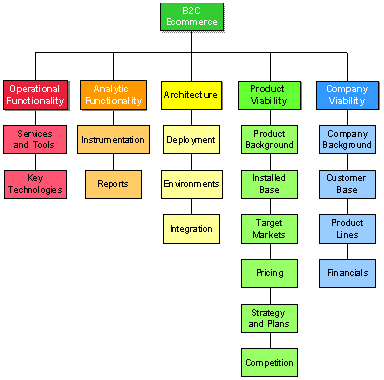Venda Enterprise
Excellent Merchandising and Customer Service with SaaS Deployment for Retailers
Venda Enterprise is the ecommerce software platform offering of Venda, Inc., a privately held, New York, NY-based software supplier and ecommerce hoster that was founded in 2001. Release 5.3.38 is the current, monthly release of the platform that was introduced in 2001. To date, Venda claims that 140 customer organizations, mostly retailers in the US and Europe, have deployed ecommerce sites based on Venda Enterprise. If you are a brand-conscious retailer or a manufacturer that sells directly to consumers with online revenues of up to $100 million, then Venda Enterprise could be your ideal ecommerce platform. It combines rich packaged services and easily configurable facilities with hosted multi-tenant deployment to make ecommerce stores easy and fast to implement and easy to manage. IT skills and resources are barely needed.
NETTING IT OUT
Venda Enterprise is the ecommerce software platform offering of Venda, Inc., a privately held, New York, NY-based software supplier and ecommerce hoster that was founded in 2001. Release 5.3.38 is the current, monthly release of the platform that was introduced in 2001.
To date, Venda claims that 140 customer organizations, mostly retailers in North America and Europe, have deployed ecommerce sites based on Venda Enterprise.
On the Customers.com report card for evaluating B2C ecommerce platforms,
Venda Enterprise exceeds requirements in merchandising, and channel support. It needs improvement in analytic functionality. The platform meets requirements for all other evaluation criteria.
If you are a brand-conscious retailer or a manufacturer that sells directly to consumers with online revenues of up to $100 million, then Venda Enterprise could be your ideal ecommerce platform. It combines rich packaged services and easily configurable facilities with hosted multi-tenant deployment to make ecommerce stores easy and fast to implement and easy to manage. IT skills and resources are barely needed.
VENDA ENTERPRISE
Product Introduction and Background
Venda Enterprise is the ecommerce platform from Venda, Inc. The product was introduced in 2001. Its current release is 5.3.38, current for January 2010 within a monthly release cycle.
Venda Enterprise is an ecommerce platform built of a range of technologies including Java, Perl, php, and Ruby on Rails. It has been designed for rapid, SaaS deployment by marketers and merchandisers with little assistance from IT. Venda offers the platform through subscription licenses for hosted multi-tenant deployment.
Organizations that will find Venda Enterprise most attractive are brand-conscious retailers and manufacturers that sell to consumers and have annual online revenues between $5 million and $100 million. The product does not have any industry segment-specific technology or functionality, but its rich merchandising capabilities and its SaaS deployment style has been very appealing in this segment.
Company Background
Venda is a privately-held ecommerce software, implementation services, and hosting provider. The firm was founded in 2001 by Dan Wagner, a noted UK entrepreneur. Wagner had envisioned the concept for a shared ecommerce platform in 1998 and had formed and funded a business unit of his Marketing Analysis and Information Database (MAID) firm to develop the concept. In 2000, Wagner purchased the assets of the then defunct online apparel provider boo.com, adding retail ecommerce technology and capabilities to his ecommerce development venture. (No surprise then that Venda Enterprise has been so successful in retail.)
In 2001, Wagner spun out the ecommerce development organization from MAID to form Bright Station. Bright Station had two divisions: Venda, Inc. and Locayta, Ltd. Venda was to offer an ecommerce platform and Locayta was to offer a search engine—both for shared deployment. Also in 2001, Venda acquired its first customer, British Telecom.
Today, Bright Station is a privately held holding company. Two of its business units are Venda and Locayta. Venda has its headquarters in New York, NY, with offices in London and Bangkok. The Venda Enterprise ecommerce platform includes the Locayta search engine.
THE CUSTOMERS.COM EVALUATION FRAMEWORK FOR B2C ECOMMERCE PLATFORMS
The framework has five top-level evaluation criteria. We list them below and show them visually in Illustration 1. We’ll provide a little more detail about each of them as we go through our evaluation of Venda Enterprise.
- Showstoppers
- Supporting customers, marketers and merchandisers, and channels
- Configuration and customization
- Analytic functionality
- Viability

© 2010 Patricia Seybold Group, Inc.
Illustration 1. This illustration shows the evaluation criteria and sub-criteria of the PSGroup B2C Ecommerce Evaluation Framework.
SHOWSTOPPERS
Showstoppers First
Showstoppers come first. So you’ll be able to determine quickly (and easily) whether or not an ecommerce platform is right for your ecommerce site. You won’t have to wade through detailed descriptions and analyses of product data models, Web content, or search results management, for example, to know that you should move on to considering another platform because a given platform isn’t intended for organizations in your industry, for example.
- TARGET MARKETS. Suppliers position their platforms to support organizations of certain sizes, specific industry segments, and specific geographies. More importantly, their platforms have the technology that reflects this support or may lack the technology for supporting other organization sizes, industry segments, and geographies.
- DEPLOYMENT APPROACHES. Ecommerce suppliers offer on-premise, hosted single-tenant, and hosted multi-tenant deployment alternatives. No supplier offers all three. For example, if you want fast and low cost deployment and if you want your supplier to manage performance and availability, then select a supplier offering hosted multi-tenant deployment. Or, if you need to deploy your ecommerce site in your physical site using your facilities and staff, then select a platform with on-premise deployment. The scope and scale of your efforts will depend on deployment approach and on whether or not you’ll be migrating from a current implementation created from a different deployment approach. That’s big in an ecommerce platform evaluation
- ENVIRONMENTS. Environments are the server operating systems, RDBMSs, Web infrastructures, and clients that a platform supports. For on-premise deployments, if your IT standards are not included, then your consideration of a platform is over.
- IMPLEMENTATION STYLE. Your implementation of an ecommerce site will require customization and configuration of varying depth and complexity. This depth and complexity depends both on your ecommerce requirements and on what we’ll call the implementation style of ecommerce platforms. Some ecommerce platforms provide the facilities, interfaces, and tools to support deep customization. For example, Elastic Path Commerce provides source code. Other platforms provide lots of configuration but limited customization, speeding your implementation effort, perhaps, at the expense of flexibility. You should match your implementation style with the implementation style of an ecommerce platform.
Showstoppers for Venda Enterprise
In Table A, we present the showstoppers for Venda (please download the PDF to see table)...
Sign in to download the full article
0 comments
Be the first one to comment.



